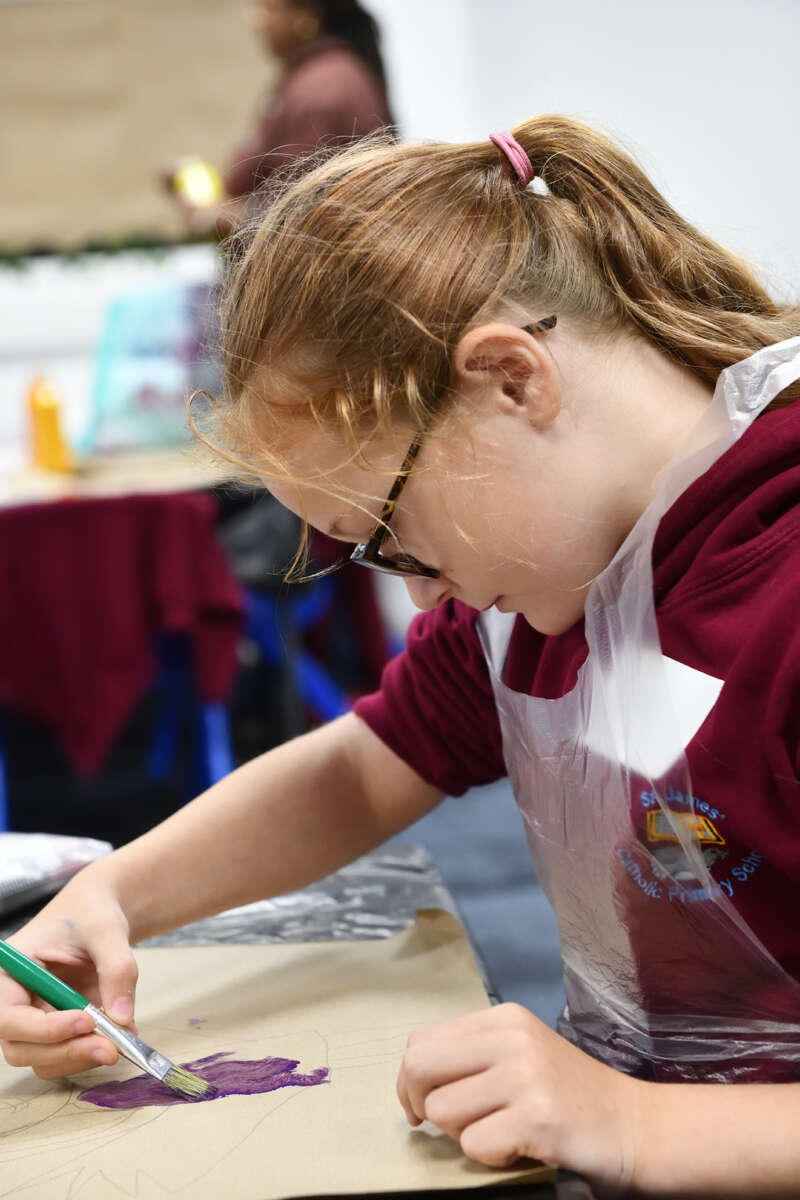Jacqui O’Hanlon MBE, Deputy Executive Director of the Royal Shakespeare Company and CLA Evidence Associate, is Chair of CLA’s Evidence and Value Narrative Working Group and Sally Bacon OBE is CLA Executive Co-Chair. Here they both provide an update on the Group’s progress and reflect on a step change in building a shared language around the evidenced value of arts and cultural learning.
For the past year we have been working with the Cultural Learning Alliance Evidence and Value Narrative Working Group, which has several universities represented and has been advised by the Alliance’s Senior Evidence Associate, Professor Pat Thomson of Nottingham University. Evidence work is the cornerstone of the CLA’s work and the RSC has a deep commitment to using research to support the removal of barriers to participation in arts and culture. It is also the only performing arts organisation with Independent Research Organisation (IRO) status.
The Evidence and Value Narrative Group has been scoping the creation of an arts and cultural learning online Evidence Hub (made possible by seed funding from Bloomberg Philanthropies), and we have commissioned important Rapid Evidence Reviews across arts subjects in schools as part of the CLA’s evidence partnership with the Royal Shakespeare Company. We will have the findings of the Rapid Evidence Reviews next year, but in the meantime we have made great strides in our work to develop a shared language for talking about the value of expressive arts subjects in schools.
We did not set out to create a Capabilities Framework but that’s what has emerged from all our discussions, reflection on evidence, and deep thinking over the past year. Our draft Framework sets out seven capabilities developed through Expressive Arts subjects. We are taking decades of evidence and research and using it to reframe the value of Arts education, making deliberate choices in describing the evidenced benefits of studying Expressive Arts subjects.
Each of these capabilities has personal benefits to the child/young person, but also a broader set of societal benefits, and we see the two areas of benefit as connected, not separate. The next stage will be mapping the detailed national and international evidence we have gathered onto the Framework: the value narrative will be informed by the evidence and the two are closely interlinked.
The Framework will provide a helpful shared language for talking about the benefits of an arts-rich education. However, we have also realised, through consultation with school leaders, that it can provide a valuable self-improvement tool for schools – a new and helpful lens to use in considering the pedagogy and provision of arts subjects. We hope to test this approach through the year.
To summarise the Capabilities Framework, we believe the value of the experiences, skills and knowledge that children and young people acquire through expressive arts subjects can be distilled through three pillars that represent the kinds of capabilities/qualities that expressive arts subjects and experiences provide: Being and Becoming; Relating; and Critical and Creative thinking. These in turn encompass seven capabilities that have personal benefits for the child, and which also result in societal benefits: agency, wellbeing, communication, empathy, collaboration, creativity and interpretation. These three pillars and seven capabilities (as they relate to personal benefits only) are summarised below:
Capabilities Framework
BEING, BECOMING AND BELONGING
1. Agency – confidence | identity | autonomy
2. Wellbeing – self-worth | resilience | pleasure
RELATING
3. Communication – self-expression (including oracy) | listening skills | relationship building
4. Empathy – compassion | understanding and appreciation of difference | open-mindedness
5. Collaboration – co-operation | participation | connectedness
CREATIVE AND CRITICAL THINKING:
6. Creativity – imagination | curiosity | originality
7. Interpretation – independent critical thinking | reflective judgement | meaning making
Professor John Last once described the fundamental ‘flaw in the logic that says to count is to become economically productive, but to create is not’. He saw this as a ‘flawed equation’ which dominated in relation to the economic value of education in the UK, which primarily linked literacy and numeracy – and STEM subjects – to economic and individual prosperity and ignored the contribution of the arts to the development of skills for life and work. This was certainly true in relation to government education policies from 2010-2024. We believe that this Capabilities Framework will now help to shift the narrative around the value of studying expressive arts subjects for the individual, and for society more widely.
A more detailed version of the Framework will be available soon which will include the detailed societal benefits. Each capability is to be mapped against the significant body of evidence gathered through the Rapid Evidence Reviews for dance, drama and music, commissioned through Midlands4Cities. There will also be a refresh of the existing art and design Rapid Evidence Review. All of this work will happen in 2025.
We now have a detailed feasibility study on the creation of an Evidence Hub for arts and cultural learning and the next steps will be to gather potential partners and funders. The Capabilities Framework provides a helpful taxonomy for this Hub.
We have spent many years asserting the value of arts subjects in supporting attainment across other curriculum areas – and they can indeed lead to benefits in this way – but we are finally at a stage when we can assert the evidenced value of arts subjects in and of themselves. And we are working on all of this at a time when curriculum changes are in prospect in the context of the government’s Curriculum and Assessment Review, which is examining all the evidence around what works and what is not working in the current system. All of our data and value narrative work can therefore feed into an altered education landscape in which evidence is valued over ideology. We look forward to sharing and consulting more in the coming months.




